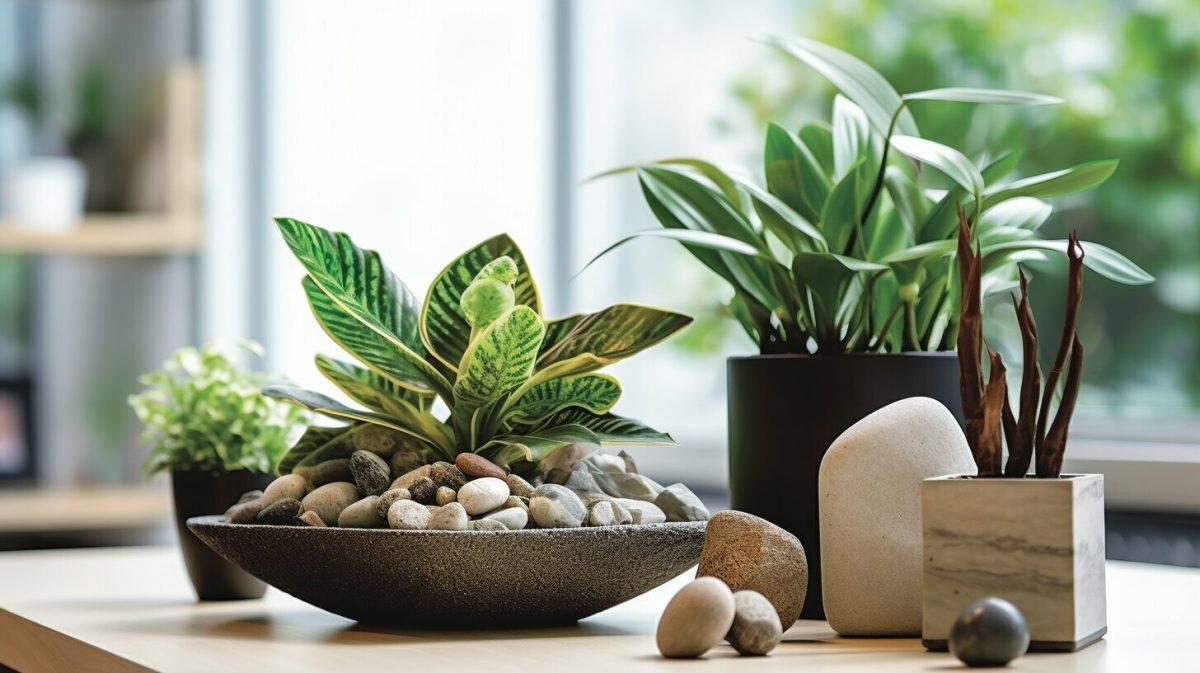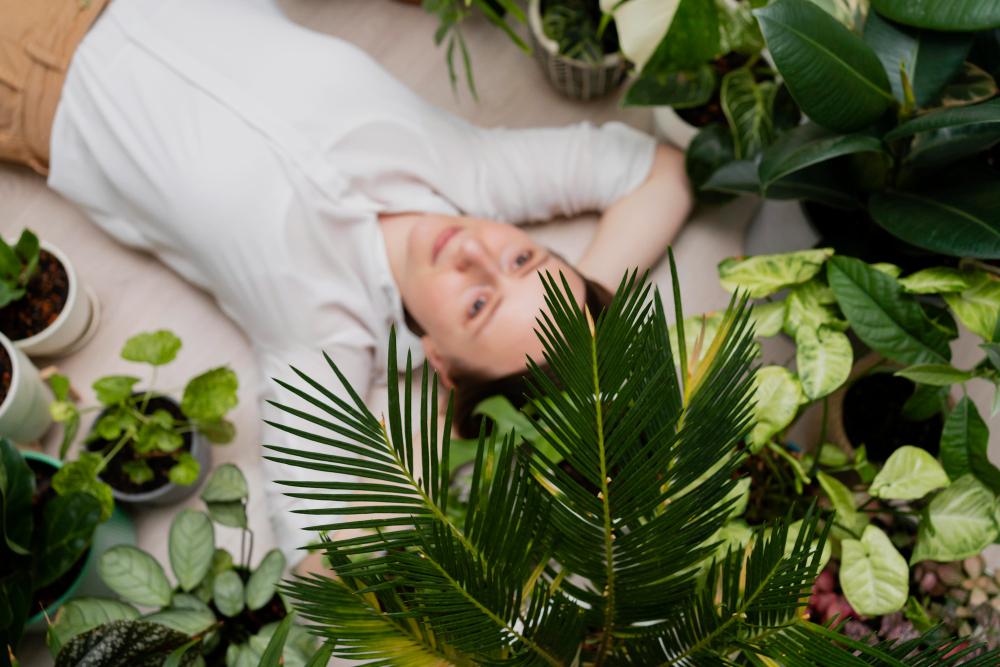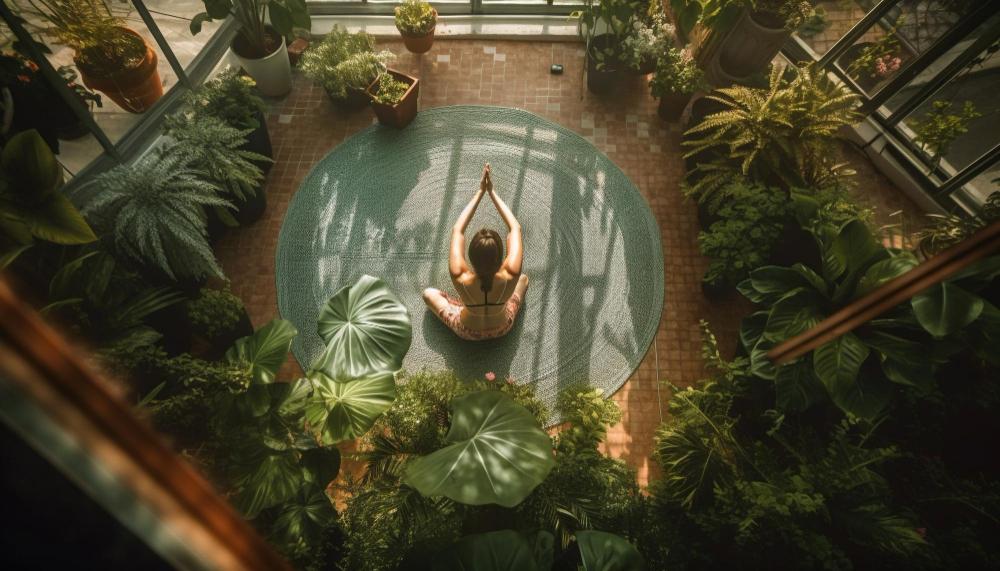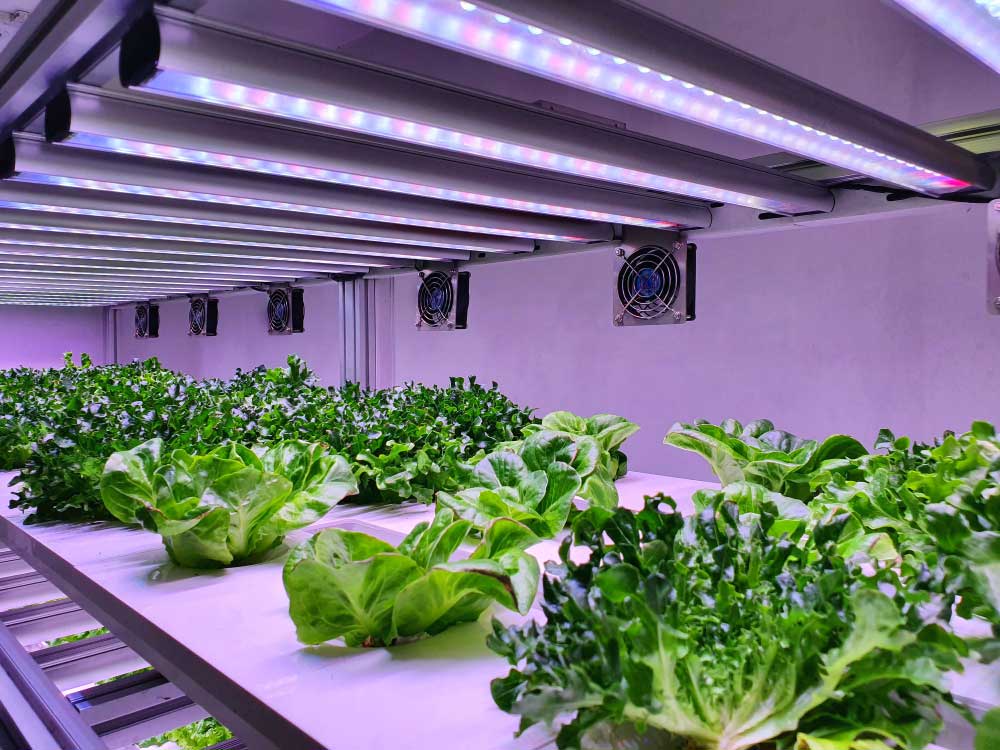Introduction
Welcome to our guide on how to harmonise your living space with indoor gardening and Feng Shui. The art of indoor gardening has been gaining popularity in recent years, as people seek to bring the benefits of nature into their homes. Feng Shui, an ancient Chinese practice, focuses on creating balance and positive energy in our living spaces. Combining indoor plants with Feng Shui principles can bring a sense of peace, calm, and harmony to your home. In this article, we’ll explore the benefits of indoor gardening, the basics of Feng Shui, and how to integrate these practices to create a thriving and vibrant living environment.
Key Takeaways:
- Indoor gardening and Feng Shui can help you create a harmonious and balanced living space.
- Green Feng Shui combines the benefits of indoor plants with the principles of Feng Shui to promote positive vibes and holistic living.
- Indoor plants can be selected based on their energy properties, shapes, and placement to align with Feng Shui principles.
- Zen decor, plant care, and nurturing indoor plants all play a role in creating a thriving indoor garden.
- Indoor gardening can have a positive impact on mental health, well-being, and purify the air in your home.
Understanding Indoor Gardening & Feng Shui
As we explored in the previous section, indoor gardening and Feng Shui share a common goal of creating a harmonious and positive living space. When combined, the two practices can have a powerful impact on our well-being and overall quality of life. Let’s take a closer look at the basics of Feng Shui and how it can be applied to indoor gardening for a holistic approach to home decor and living.
Feng Shui is an ancient Chinese philosophy that focuses on the flow of energy, or chi, in our surroundings. According to Feng Shui principles, a harmonious flow of energy contributes to a sense of balance, peace, and prosperity in our lives. The goal of Feng Shui is to create a living space that supports our physical, mental, and emotional well-being by optimising the flow of chi.
When it comes to indoor gardening, Feng Shui principles can guide us in selecting plants, arranging them strategically, and creating a positive energy flow within our homes. Green Feng Shui, as it is commonly referred to, is the practice of using indoor plants to bring positive energy and balance to our living spaces.
The holistic benefits of indoor gardening combined with the positive effects of Feng Shui are truly remarkable. By understanding the basics of Feng Shui, we can create a more harmonious and thriving living space through indoor gardening.
Choosing the Right Indoor Plants for Feng Shui
When it comes to indoor gardening and Green Feng Shui, choosing the right plants is essential for creating a harmonious and holistic living space. The type of plants you choose, their shape, and their placement within your home can all impact the flow of energy and contribute to a positive atmosphere. Here are some tips to help you choose the right indoor plants for your home:
1. Consider the Energy Properties of Plants
Plants are believed to possess different energy properties that can affect the atmosphere of your home. For example, some plants are believed to promote relaxation and calm, while others are thought to bring abundance and prosperity. When selecting indoor plants for Feng Shui, consider the energy properties you want to invite into your home and choose plants that align with those goals.
2. Look for Plants with Round or Curved Shapes
In Feng Shui, rounded and curved shapes are believed to promote a positive flow of energy. When selecting indoor plants, look for ones with soft, rounded leaves or those that naturally grow in a curved shape. Avoid plants with sharp, pointed leaves or those that have a spiky appearance, as they can create a negative energy flow.
3. Place Plants in the Right Areas of Your Home
Where you place your indoor plants can also impact the energy flow in your home. For example, placing plants in the Wealth Area (the far left corner of your home) is believed to attract wealth and prosperity, while placing plants in the Love and Relationships Area (the far right corner of your home) can enhance the romantic atmosphere. Consult a Feng Shui expert or guidebook for more detailed information on plant placement.
4. Choose Plants that are Easy to Care for
When selecting indoor plants, it’s important to choose ones that are easy to care for and maintain. Plants that are healthy and thriving will contribute to a positive energy flow, while plants that are wilting or dying can have a negative impact on the atmosphere. Consider your lifestyle and the amount of care you can realistically give to your indoor plants before making your selections.
With these tips in mind, you can choose the right indoor plants to create a Green Feng Shui living space that promotes holistic living and positive energy.
Creating Zen Decor with Indoor Plants
Indoor plants not only add a touch of greenery to our homes, but they can also create a Zen-like atmosphere that promotes peace and tranquility. By strategically incorporating indoor plants into our home decor, we can achieve a sense of balance and positive vibes that foster a calm and relaxing environment.
When it comes to creating Zen decor with indoor plants, there are a few key design elements to consider. First, consider using natural materials such as wood, rattan, and bamboo for plant stands or pots. These materials not only blend seamlessly with plants, but they also add an organic feel to the space.
In addition to natural materials, minimalist aesthetics can also contribute to a sense of peace and simplicity. Consider keeping your plant arrangements simple and uncluttered, with just a few select indoor plants scattered throughout your home.
Strategic placement of indoor plants can also create a Zen-like atmosphere. Consider placing plants in areas of your home where you spend the most time, such as near a window or next to your favourite reading chair or sofa. This will allow you to enjoy the calming benefits of indoor plants throughout the day.
Overall, creating Zen decor with indoor plants is all about promoting positive vibes and balance in our living spaces. By carefully selecting plants, incorporating natural materials, and strategically placing our greenery, we can achieve a peaceful and harmonious environment that promotes relaxation and well-being.
Nurturing Indoor Plants for Positive Energy
Plant care is an essential element in maintaining a thriving indoor garden that promotes positive vibes and holistic living. Here are some tips for nurturing indoor plants to ensure they receive the care they need:
- Watering: Ensure plants receive the right amount of water by checking the soil moisture regularly. Overwatering can lead to root rot, while underwatering can cause the plant to wither. Use room temperature water and avoid watering the leaves, as this can lead to fungal growth.
- Light Requirements: Different plants require varying degrees of sunlight. Some prefer bright, indirect light, while others thrive in low light conditions. Research the light requirements of each species in your indoor garden, and place them in areas that receive the right amount of light.
- Invest in High-Quality Soil: Good quality soil promotes healthy root growth and better plant growth. Look for soil mixes that contain peat moss, vermiculite or perlite, which provide adequate drainage and nutrient retention.
- Fertilise: Indoor plants will require extra nutrients to thrive. Use a balanced fertiliser that provides enough nitrogen, phosphorus, and potassium to support growth. Follow the instructions on the packaging and fertilise once a month during the growing season.
- Trimming: Pruning helps to promote bushy growth and prevent legginess. Trim off any dead, yellowing, or brown leaves to encourage healthy growth.
- Cleanliness: Clean leaves and dust the surfaces around your indoor plants to prevent pests and diseases. Use a damp cloth to wipe down the leaves, and keep foliage dry to prevent mold and mildew formation.
By using these plant care practices, you can help your indoor garden promote positive vibes, holistic living, and interior greenery.
The Holistic Benefits of Indoor Gardening
At its core, indoor gardening and Feng Shui are holistic practices that promote a balanced and harmonious life. By incorporating indoor plants into our homes, we can reconnect with nature and enjoy a range of holistic benefits that extend far beyond just visual appeal.
In fact, numerous studies have shown that indoor gardening can help improve our mental health and overall well-being. For example, exposure to indoor plants has been shown to reduce stress levels, lower blood pressure, and boost our mood and productivity.
Moreover, indoor plants can help purify the air we breathe by removing harmful chemicals and pollutants. This has a positive impact on the indoor air quality, which in turn improves our respiratory health and supports a better night’s sleep.
With so many benefits to offer, it’s no wonder that indoor gardening and Feng Shui have become increasingly popular in recent years. By embracing these practices and incorporating indoor plants into our homes, we can create a more peaceful and thriving living environment that supports our holistic well-being.
Harnessing Chi Balance with Indoor Plants
In Feng Shui, chi is the life force energy that flows through all living things. It is believed that when chi is balanced and flowing freely, it brings positive energy and good fortune. One of the ways to achieve this optimal chi balance is through indoor gardening with plants that align with Feng Shui principles.
The placement and arrangement of indoor plants are crucial in enhancing the flow of chi within the home. For example, plants with rounded leaves are believed to promote harmonious energy, while those with sharp leaves can create tension and conflict. It is also essential to consider the location of the plant within the space.
| Placement | Description |
|---|---|
| East | Plants placed in the eastern part of the home can bring good health and vitality. |
| South | The southern part of the home is associated with wealth and success. Plants placed here can enhance these attributes. |
| West | Plants in the western part of the home can promote creativity and children’s well-being. |
| North | The northern part of the home is linked with career and life path. Plants placed here can improve these areas. |
It is also recommended to use groupings of plants to create a flow of energy. The number three is considered lucky in Feng Shui, so using three of the same plant in a grouping can bring positive vibes.
By harnessing chi balance with indoor plants, we can create a harmonious and positive living environment that promotes overall well-being and Holistic Living.
Integrating Indoor Plants with Existing Decor
Incorporating indoor plants into your home decor is a fantastic way to create a Zen-like atmosphere, foster positive vibes and add some interior greenery to your living space. But how do you go about doing it? In this section, we’ll provide practical tips on how to integrate indoor plants with your existing decor.
First, consider the style and color scheme of your existing decor. Zen decor often features natural materials like wood, bamboo, and stone, as well as neutral colors like beige, cream, and brown. Choose plant pots made from natural materials that complement your existing furniture. Terracotta pots, for example, look great in rustic or bohemian-style rooms, while sleek ceramic pots work well in modern or minimalist spaces.
To further enhance the Zen-like atmosphere, consider grouping plants of varying sizes and shapes together in clusters, rather than scattering individual plants throughout the room. Grouping plants together creates a more cohesive and visually appealing display.
Another way to integrate plants with your decor is to consider their natural placement. For example, if you have a windowsill, consider placing a trailing plant like a pothos or ivy on it for a natural, flowing effect. You can also use plant stands or shelves to elevate your plants and create a layered look.
You can also play around with color and texture by choosing plants with unique foliage, like a fiddle leaf fig or snake plant, to add visual interest to your decor.
When it comes to placement, aim for a balance of plants throughout the room. Too many plants in one area can create a cluttered and overwhelming effect. Instead, consider placing plants strategically throughout the room to create a sense of balance and harmony.
By following these practical tips, you can seamlessly integrate indoor plants with your existing decor. Not only will it add some interior greenery to your living space, but it will also enhance the positive vibes and Zen-like atmosphere.
The Impact of Indoor Gardening on Home Energy
When it comes to creating a harmonious living space, the energy of our homes plays a crucial role. This is where indoor gardening and Feng Shui come into play, helping us to harness positive vibes and improve the overall energy of our homes. By integrating indoor plants with energy principles, we can create a more holistic and vibrant living environment.
One of the most significant benefits of indoor gardening is the impact it has on home energy. Plants have been shown to purify the air, reducing the number of toxins and pollutants in our homes. This can improve indoor air quality, which is particularly important for those with respiratory conditions or allergies. Additionally, indoor plants can increase humidity levels, making the living environment more comfortable and reducing the risk of dry skin or respiratory issues caused by dry air.
Indoor gardening can also help to create a more harmonious and balanced living environment. When we align our indoor plants with Feng Shui principles, we can harness the power of chi (life force energy) to create a more balanced and harmonious flow of energy in our homes. This can help to promote feelings of peace and tranquility, reducing stress levels and promoting overall well-being.
Overall, integrating indoor gardening and Feng Shui into our homes can have a significant impact on home energy. By harnessing positive vibes and promoting a sense of harmony, we can create a more holistic and vibrant living space that supports and nurtures our overall well-being.
Conclusion
As we’ve explored throughout this article, indoor gardening and Feng Shui principles go hand in hand in creating peaceful and thriving living spaces. By harmonising indoor plants and energy flow, we can achieve a sense of balance and positive vibes in our homes.
With the right plant selection, a Zen-like decor can be achieved in any living space. But indoor gardening is not just about aesthetics. Nurturing plants can also have holistic benefits for our mental and physical well-being.
By optimising the flow of chi, we can create a more harmonious environment and tap into the life force energy that surrounds us. Integrating indoor plants into our existing home decor is a practical and easy way to enhance the positive energy of our living spaces.
So why not explore the benefits of indoor gardening and Feng Shui in your own home? By taking a holistic approach to plant care and energy flow, we can create a space that not only looks beautiful but also feels vibrant and nurturing.
Indoor Gardening & Feng Shui
FAQ
Q: What is indoor gardening and how does it relate to Feng Shui?
A: Indoor gardening is the practice of growing plants indoors, typically in pots or containers. It relates to Feng Shui as it aligns with the principles of energy flow, balance, and positive vibes that Feng Shui brings to our living spaces. By incorporating indoor plants strategically, we can create a harmonious and thriving environment.
Q: How do I choose the right indoor plants for Feng Shui?
A: When choosing indoor plants for Feng Shui, consider their energy properties, shapes, and placement within your home. Opt for plants with lush green leaves and rounded or flowing shapes. Place them in areas where they can bring positive energy and balance to the space.
Q: How can I create Zen decor with indoor plants?
A: To create Zen decor with indoor plants, use natural materials, embrace minimalist aesthetics, and strategically place plants to foster a sense of calm and tranquility. Opt for simple and clean plant pots, select plants with soothing qualities, and arrange them in a way that promotes a peaceful atmosphere.
Q: What are some essential tips for nurturing indoor plants?
A: To nurture indoor plants for positive energy, ensure they receive proper watering, provide adequate light according to their specific requirements, and follow general plant care practices. Regularly check soil moisture, avoid overwatering, and monitor the overall health of your plants to promote vibrant growth.
Q: What are the holistic benefits of indoor gardening?
A: Indoor gardening offers various holistic benefits, including improved mental health, reduced stress, and enhanced overall well-being. Connecting with nature through indoor plants can create a calming and nurturing environment, bringing positive vibes and a sense of tranquility into your living space.
Q: How can indoor plants help harness chi balance?
A: Indoor plants can help achieve a harmonious balance of chi (life force energy) in our homes. By strategically placing and arranging plants, we can optimise the flow of energy and create a more balanced and vibrant living environment. Consider the principles of Feng Shui when arranging your indoor plants.
Q: How can I integrate indoor plants with my existing decor?
A: To integrate indoor plants with existing decor, select plant pots that complement your interior style and choose plants that harmonise with the overall color scheme. Incorporate plants into existing furniture arrangements and use them as accents or focal points to enhance the aesthetic appeal of your space.
Q: What impact does indoor gardening have on home energy?
A: Indoor gardening can have a positive impact on the energy of our homes. Plants purify the air, increase humidity, and create a more harmonious and vibrant living environment. They contribute to a sense of well-being and create a nurturing atmosphere that promotes positive energy flow.









